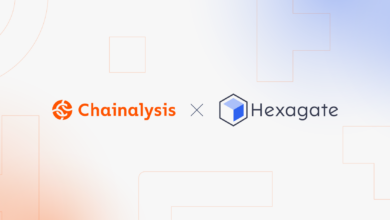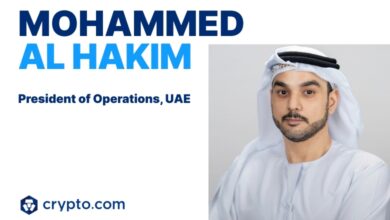Elevating the Developer Experience: Trust Wallet’s Open Collaboration for Standardized Infrastructure
The crypto market of 2022 was marked by a high level of volatility and uncertainty, as market participants faced a range of challenges and disruptions.
This included a series of high-profile hacks and scams, regulatory changes, and a general sense of confusion and mistrust among investors.
In this climate, the security of crypto wallets became a critical issue, as investors sought ways to protect their assets from theft and fraud.
10 Million Active Users
One company that has seen significant growth is Trust Wallet, a wallet that allows users to store and manage their digital assets in a secure and private way. The company has seen a three-fold increase in its team size over the past year, and now serves over 10 million active users.
Despite the bear market conditions that have characterized the crypto industry in recent months, Trust Wallet has been able to attract top talent and focus on building a solid infrastructure that will be able to scale up to serve even more users in the future.
The company is focused on preparing for the next round of mass adoption, and is already looking ahead to the time when it will be serving 100 million or even 1 billion users.
In an interview with UNLOCK Blockchain, Eowyn Chen, CEO of Trust Wallet, explained that in the last 60 days, around $13 billion worth of assets have left Binance, and it is unclear whether these users have moved to Trust Wallet or to other platforms, as Trust Wallet puts a strong emphasis on privacy protection, so it is difficult to track the movements of users on-chain.
Due to privacy protection mechanisms, the sources of a lot of funds are unknown. As a result, it is difficult to feature data on the topic.
The speaker noted that many people may not be aware that their company is a Binance portfolio company, as they have always operated independently. Eowyn also emphasized on the importance of self-custody and how users can access their assets using any product UI, as long as they have the private key and on-chain addresses.
Eowyn also mentioned that the recent incidents at FTX have led more people to move towards decentralization, but education is still lacking in the industry. She suggested using gamification and AI capabilities such as GPT to raise awareness and educate people about web 3.0 and wallet usage.
In fact, the Trust Wallet team has proposed such initiatives, but are still thinking about the right way to execute them without distracting users from the main purpose of the product.
In addition to that, Eowyn discussed the security of different types of wallets, including cold wallets, mobile wallets, and extension wallets. She mentioned that cold wallets are the most secure, but they are not as easily accessible as mobile and extension ones.
Cold Wallets can co-exist with mobile wallets
On one hand, cold wallets are best for users who want to hold the majority of their assets in self-custody and don’t need to access them frequently. On the other hand, hot wallets (mobile and extension) are more accessible and have more exposure to the internet, making them more vulnerable to attacks.
For this reason, the CEO suggests that a combination of cold and hot wallets is the best for user experience, as they focus on providing users with access to as many tokens and innovations as possible, even if it means slower speeds and lower security than cold wallets. She explained that the trade-off decisions in the future will be between simplicity, security, and openness in the wallet experience.
On another note, the speaker tackled the issue of blocking funds from moving into trust wallets, and the problem of dealing with bad actors in the space.
She said, “The key question is not on the wallet’s side, but on the blockchain side. I believe that when bad actors want to do something, there is no way to stop them, but what they should focus on is doing what is right for the world, and holding up to the right value proposition for security in the entire space.”
She continued, “This is a challenge for both regulators and technologists, and everyone needs to work together to understand the purpose, what is possible and what is not, and how to design fair requirements and expectations for everyone.”
She concluded, “As I previously mentioned, the biggest challenge is to educate regulators not to push web3 applications to become more like traditional applications. In fact, Trust Wallet’s profit model is based on advertising or internet aggregator services, and not on trading or swap fees.”
In addition to its commitment to security and scalability, the Trust Wallet team is also focused on supporting developer communities and facilitating seamless access to new projects for users.
The company has a long-term vision for sustainable growth in the web3 space, and is working tirelessly to demonstrate the possibility of developing good web3 projects with integrity and values.
To achieve this goal, Trust Wallet opens sources as much of its infrastructure to allow other wallets to build on top of it and experiment with different product designs. This approach allows for greater collaboration and innovation within the web3 ecosystem and supports the growth and advancement of the entire community.
Openness, Transparency, and Inclusivity
The Trust Wallet team is dedicated to fostering a culture of openness, transparency, and inclusivity in the web3 space and is actively working to create the conditions for sustainable growth and success.
Additionally, the company is open to cooperation with all stakeholders in the web3 ecosystem in order to establish a standard infrastructure that improves the developer experience. They believe that by working together and sharing knowledge and resources, the community can achieve greater progress and success.
The team at Trust Wallet is committed to fostering a culture of openness, collaboration, and inclusivity, and is actively working on building relationships that will help to create a more seamless, user-friendly and accessible infrastructure for developers.
Trust Wallet is dedicated to advancing the web3 ecosystem by providing developers with the tools and resources they need to create innovative and impactful projects. In order to achieve this, the company offers Trust Wallet Core, a library that provides the necessary functionality for building a cryptocurrency wallet. As a matter of fact, it is cross-platform, meaning it can be used on multiple operating systems and devices.
The library implements low-level cryptographic functions that are necessary for securely storing and managing blockchain assets. Both the Crypto(dot)com and Blockchain(dot)com wallets have been on it. In other words, this allows these wallets to support multiple blockchains and provide a consistent user experience across different platforms.
After all, unleashing the power of scalability for a future where knowledge knows no bounds is the answer!
For the full interview, please click here.





